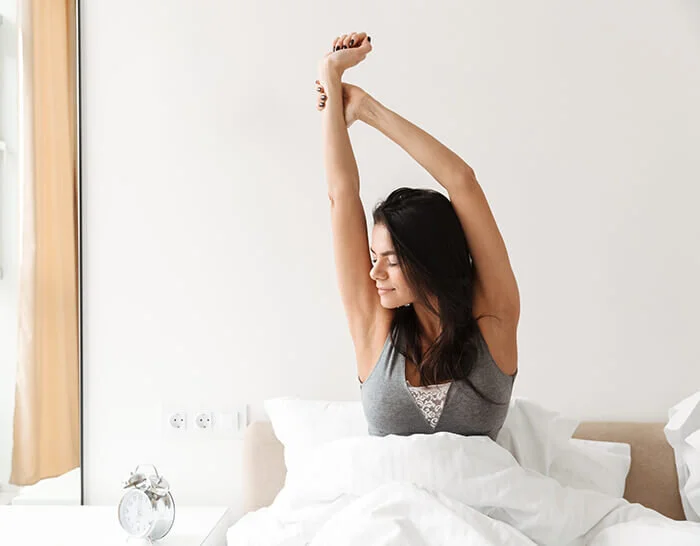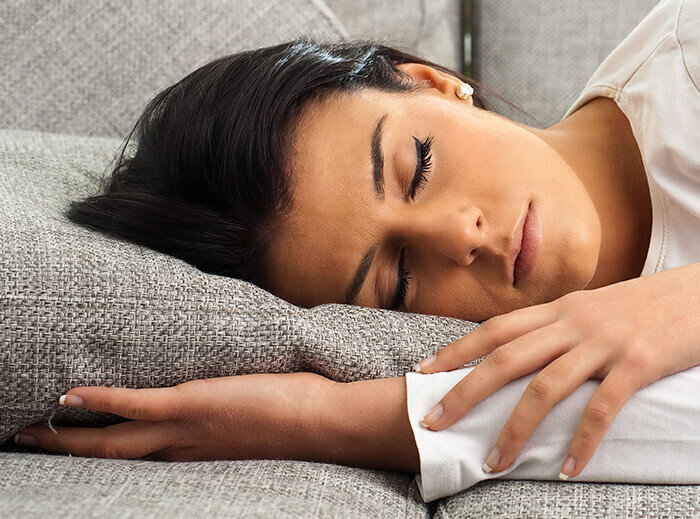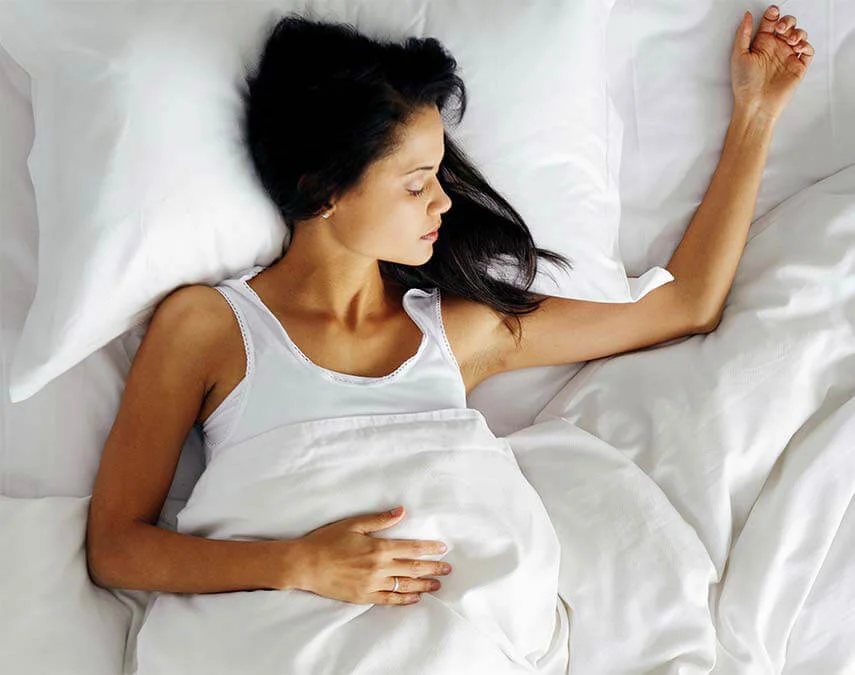Determine If Sleeping In Is The Right Way To Spend Your Weekend
We’ve all been there before, just waiting for the weekend in order to catch up on sleep and to feel relaxed, rejuvenated and ready for another stressful week ahead. A lot of people enjoy sleeping in on the weekends and on catching up after a long week at work.
Does this act of sleeping in on the weekend really help? Research is showing it may not be as beneficial as many people think and it could actually have some residual side effects, such as unintended weight gain. So, before you start planning to sleep in all morning the next time the weekend rolls around, consider some of the research behind sleeping in on the weekend—to determine if this is the right way to spend your Saturdays and Sundays.
Can You Really Catch Up on Sleep?
Before you learn more about some of the side effects that can come with sleeping in on the weekend, it is important to address the notion behind sleeping in on the weekend and weather or not it can really help you “catch up” from the sleep you may be missing out on during the work week.
According to one study from the Harvard Medical School—not really. While you may feel better sleeping a full 10-12 hours on the weekend, after only sleeping 6 hours per night during the week, it won’t exactly help you.
In fact, the study found that reaction times and the ability to concentrate after doing this was worse than when you don’t sleep at all.
So basically, pulling an all-nighter would allow you to have better focus and faster reaction. This is an issue for students, doctors, nurses and cops who need to work long shifts with little sleep and who try to use their off time in order to make up for that sleep.
The bottom line is, there is no way to recoup your lost sleep. You are either sleep deprived or not.
Why is This Bad?
While it is true that you can’t really “catch up” on sleep by not setting your alarm on the weekend—it is about much more than that. When you adopt this mindset of waiting until the weekend to catch up on sleep, you are putting yourself at risk for sleep deprivation, which is very serious.
According to experts, sleep deprivation can cause the following issues:
Slower working metabolism. When you are sleep deprived, your body will use its energy sources more slowly, thinking it is in survival mode. It will also keep weight on in order to maintain itself. It is basically keeping weight on as a “reserve.”
Hormonal imbalance. Sleep deprivation can cause some serious hormonal imbalances, and this can lead to you producing more of the hormones that tell you that you need to eat and less of the hormones that let you know you are full.
Irritability and fatigue. Of course, when we are sleep deprived we tend to get very tired and irritable. This can cause anyone to become grouchy, angry and so tired that they can’t exercise, take care of themselves or continue to maintain a healthy life. It can also cause a great deal of stress.
Increased appetite. When you are sleep deprived, your body essentially goes into a “panicked” state, and doesn’t understand why it is still awake, when it clearly wants to be resting and sleeping. This typically triggers the body to crave more food in order to make up for the lost energy and stay in survival mode.
More cravings. Sleep deprivation is known to create some pretty strong cravings—mostly for empty calories and sweet and salty, high-carb food. The body craves these things because it wants to help calm your panicked brain down.
These are all some serious, and lasting side effects of sleep deprivation. And catching a few extra hours of sleep on Saturday morning won’t make up for it and magically cause these symptoms to go away. This is why no matter how much you try to sleep in on the weekend, if you are not sleeping enough during the week, you are going to start to notice it in your waistline.
Sleep Routine
Sleeping in on the weekend causes disruptions to your sleep routine. A sleep routine is extremely important—and the key to making it work is sticking to that routine no matter what.
This even means on the weekends. A set sleep routine involves going to bed at the same time every night and waking up at the same time every morning. While there may always be unforeseeable issues that get in the way of this—it is important to do your best to stick to your sleep routine no matter what.
If you take a nap during the day, you should always take a nap at the same time. Naps should be no more than 30 minutes at a day.
A sleep routine is essential to quality sleep, but it is important that you are able to get fall asleep first. If you are struggling to fall asleep at night, which is why you find yourself sleep deprived, keep these tips in mind to incorporate into your sleep routine:
Avoid caffeine in the afternoon and evening
Limit alcohol intake
Avoid screens and technology (including phones, computers, tables and TVs) for 30 minutes before bed
Do something relaxing, like reading, before bed to get yourself ready to sleep
Perform the same routine every night before bed to signal to your body that it is time to wind down
Performing this type of routine before bed is a positive step towards developing a sleep routine that will keep sleep deprivation at bay.
Sleep Deprivation Leads to Overeating
A lot of people deprive themselves of sleep during the week, especially under the pretense that they can just “sleep in” during the weekend and catch up on the sleep that they aren’t getting during the week.
If you are sleep deprived during the week, then you are sleep deprived. There is no real way to “balance” it out by sleeping in on the weekend. When people are sleep deprived during the week under this assumption that they will just “sleep in” on the weekends—it can cause some serious side effects. One of the most notable of these side effects is overeating.
According to one study from Current Biology, people who do not sleep enough during the week and who instead sleep extra on the weekend, had some pretty serious bad habits.
They were more likely to snack and had an increased risk of diabetes. The study looked at 36 healthy adults and studied their weight gain, snacking habits and insulin sensitivity. This could lead to long-term negative health issues, including obesity. According to the team behind the study, sleep deprivation during the week can impact hormones knowns as leptin and gherlin, which can increase your appetite.
Sleep deprivation is also linked to poor impulse control, which is why many people who don’t sleep during the week are more likely to snack on empty calories and junk food.
The results of the study were alarming and put a microscope on how much you are putting at risk by pushing the late nights in the middle of the week and sleeping in until mid-morning or afternoon on the weekend. The study concluded a much healthier alternative is to consistently get the same amount of sleep every night (preferably between 7-9 hours).
Sleeping in Didn’t Help
There are many people who will try the whole “sleeping in on the weekend” approach and who quickly find themselves saying “sleeping in doesn’t help.” You’ve already learned that you can’t make up for your lost sleep—but sleeping in and getting too much sleep in a single session can actually have a negative effect as well.
According to many studies, when you sleep in too much, you are more likely to wake up feeling more lethargic and irritated. People who sleep in are more likely to feel unmotivated instead of refreshed and ready to take on the day.
You are much better off, getting up and your normal time and not sleeping in and instead taking a 30 minute nap later on in the day. It isn’t just sleeping in either that can leave you with a lack of energy.
Any significant deviation from your normal sleep schedule or normal amount of sleep can wreak havoc on the body. It can upset your natural rhythms and make you feel much more fatigued during the day.
This is why, if you sleep in Saturday morning after a long week with little sleep, you are not going to just wake up feeling better—chances are you are going to continue to feel sluggish, tired and out of it all weekend.
Biological Clock Out of Sync
When you mess with your sleep schedule and vary from sleeping 5-6 hours on the week night to 10-11 hours on a weekend—it can really mess up your biological clock.
We all have a biological clock that tells us when we should feel tired and when we should feel awake. Our biological clock sends the signal to our body that tells us we should be tired for bed, and that we should wake up in the morning and get ready for the day. When our clock in in sync, it can help with our mood, performance, and how alert and awake we feel. When the clock gets out of sync (from messing with our sleep schedule) it can impact a number of areas of our health.
An out-of-sync biological clock can make it difficult to fall asleep on time, it can cause depression-like symptoms, cause your hormones and mood to get out-of-whack and lead to unprecedented weight gain. If you have been packing on some pounds, been irritable, experienced mood swings and find yourself always tired, but unable to fall asleep at night—it may be because your biological clock is out of sync.
The best thing you can do to get it back on track? Get back on a normal sleep schedule and start going to bed and waking up at the same time every day. It is the most effective quick-fix for this issue and the best thing you can do for your biological clock.
Know The Truth About Catching Up On Sleep Over The Weekend
If you have been feeling tired, groggy and out of sorts even if you are sleeping in on the weekends to “catch up” on sleep—then you may be dealing with some serious sleep deprivation. Sleeping in all weekend isn’t the key to feeling better and it may actually be causing some unwanted side effects. The more that you know about the truth of catching up on sleep over the weekend, the better off you will be.
Good sleeping habits are important and getting into a sleep routine is an essential part of a healthy overall body and state of mind. Remember to think twice about waiting for the weekend to accumulate all of that sleep you are missing out on over the weekend—it can really end up helping you look and feel your healthiest.
Shana Thompson is a full time professional writer and editor. Shana has worked extensively in the fields of content marketing, on-page and off-page SEO (guest posts, backlink acquisition), and creative writing. As an experienced pro content writer, Shana has worked on several magazines, publishing companies and marketing agencies. Many recent projects have included everything from nutrition and health services, where a lot of research and citations were needed, to writing about health, sustainable, eco-friendly products.
Follow Shana at Shana Thompson















